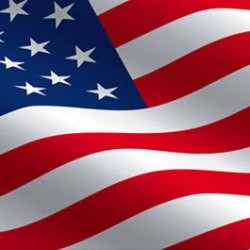How Do Americans Feel About Legalized Online Poker?

Earlier this month, the poker community was unsurprised to see an article printed in the Huffington Post in which a “Financial Advisor” by the name of Allan Smith argued that the majority of US players were not in favor of regulated online poker. I say “unsurprised” because the Huffington Post has traditionally produced numerous opinion pieces running counter to the online game, despite apparently promoting a view point pro live wagering. What follows is a break-down of some of the points raised by Smith in his post entitled “Why Most Americans Don’t Want Legalized Online Poker.”
Why Americans Oppose iPoker
In the United States, there is no real push to legalize online poker at the national level. On the contrary, there is instead more likely to be an outcry against the idea of universally regulating the game. While one would expect that the opposition would come solely from people who don’t currently gamble online because they believe it to be wasteful or amoral, the truth is that there is just as much resistance to the idea of nationally regulated online poker amongst players as there is among those who are outright opposed to all forms of gambling.
Why Do Americans Use Offshore Sites?
There are a number of reasons why Americans who are currently using real-money offshore online poker sites, or playing on legal play-money sites are against the idea of regulation. Here are some of the most popular ones suggested by Allan Smith:
1. Worry About Site Closures. People who are currently using illegal offshore online poker sites are able to fly under the radar for the most part in the United States, but many fear that legalization would lead to a crackdown on illegal operators. This could result in a freeze on money held in accounts in offshore sites similar to what happened after Black Friday in 2006 with the passage of the Unlawful Internet Gambling Enforcement Act (UIGEA). Players are wary of losing their money completely or not being able to access it for months or years if offshore sites are closed or blocked.
2. Government Inefficiency. Many online poker players simply don’t trust the government to handle online poker. They believe that a regulated system would mean having to cut through large amounts of red tape in order to play.
3. Resistance to Change. Online poker players who make a living taking to the tables on illegal offshore sites worry that regulation will put an end to their ability to win. New regulations might limit access to certain games or place other restrictions on players’ freedom. While it would likely be possible for skilled players to adapt to whatever changes are implemented, many players are resistant to the idea of having to change at all.
4. Taxation. Under U.S. tax law, players must report their winnings as income and pay federal income taxes on the money; however, players who bet on offshore sites don’t have their winnings reported to the federal government, allowing them to win under the table. If gambling were to be legalized, it’s likely that a system would be implemented to track player winnings, which would make it impossible to avoid paying taxes on the money.
5. Liquidity Concerns. In order to provide a good gaming experience, an online poker site must have adequate liquidity. There are worries among players that regulating online poker could result in a highly fragmented industry with many sites that only have a small number of players, thus making it more difficult to play.
What’s At Stake For Legalized iPoker in the US
The Allan Smith-Huffington Post article was printed on May 6th, and just a few days later the Poker Players Alliance (PPA) noticed that language supporting the Restoration of America’s Wire Act (RAWA) had been added by Rep. Charlie Dent to a spending bill set to be heard by the House of Representatives in the last week of May. The amendment was added following a request by Senator Lindsey Graham, and as the specially included passage read:
“Since 1961, the Wire Act has prohibited nearly all forms of gambling over interstate wires, including the Internet. However, beginning in 2011, certain States began to permit Internet gambling. The Committee notes that the Wire Act did not change in 2011. The Committee also notes that the Supreme Court of the United States has stated that criminal laws are for courts, not for the Government, to construe.”
Fortunately, the House of Representatives subsequently rejected the passage on May 24th, although RAWA type language is still likely to surface in legislative sessions from time to time until more states adopt regulation of their own in the future. Until that tipping point ocuurs, however, the poker community will have to remain vigilante of any further attempts to undermine the progress already made in the U.S.










